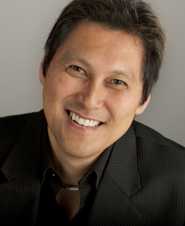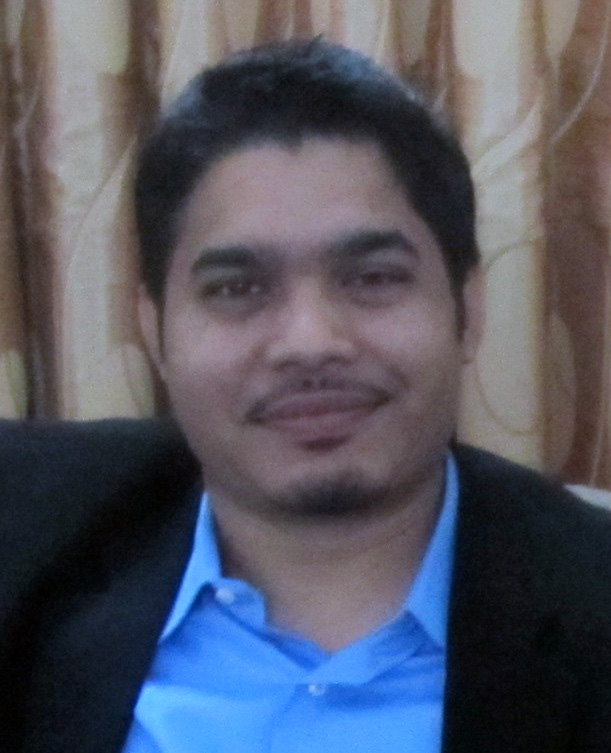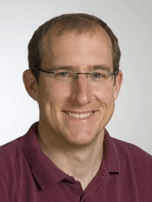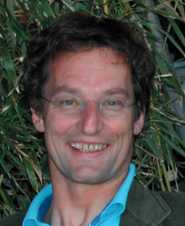






| Tony Wong Keynote lecture 1, Tuesday 4.09.2012. | |
 |
Professor Tony Wong is Chief Executive Officer of the Cooperative Research Centre for Water Sensitive Cities, a $120million research centre with four research hubs based in Brisbane, Melbourne, Perth and Singapore and involving over 75 organisations across the academia/research, industry, and government sectors. He is internationally recognised for his research and practice in sustainable urban water management, particularly in Water Sensitive Urban Design. Tony led the development of the software MUSIC (Model for Urban Stormwater Improvement Conceptualisation) that is now regarded an industry-standard software for developing strategies for sustainable urban water management in Australia. |
Short lecture abstract: Emerging trends in modelling integrated urban water systems Emerging trends in integrated urban water management strategies require understanding of the dynamic interactions of hybrid centralised/decentralised urban water systems. They operate a diversity of water supply sources, wastewater and stormwater resources recovery, and water management for multiple benefits that include enhancing urban liveability. From a UDM standpoint, our ability to reflect the social-technical interplay of urban planning and design of urban infrastructure, under a variety of future landuse and climate change scenarios, will define our capacity to influence the development or transformation of cities into resilient, liveable and sustainable places. This lecture outlines some of these emerging trends. Download the Presentation here... |
|
| Extended abstract is available here... | |
| David Khan Keynote lecture 2, Tuesday 4.09.2012. | |
 |
David Khan is an Associate Specialist working at Institute of Water Modelling (IWM), Bangladesh. He completed his post graduation and research from Texas A&M University and later got his Professional Engineering license for Texas. In the USA his work covered urban drainage management projects in several States. He came back to Bangladesh joined IWM in 2009. This created the opportunity to apply and improvise flood modelling tools to the context of Bangladesh, which is a developing country. His current work focuses on climate change impact assessment and developing climate resilient urban drainage systems. |
Short lecture abstract: Historical Development of Hydroinformatics Tools in Bangladesh and Challenges Bangladesh experiences severe imbalances of water availability during different period of the year; as a consequence any solution for a problem of one water user has an adverse impact on another. Mathematical modelling technology was introduced in early eighties for generating data, simulating planning scenarios and supporting decisions. By the middle of nineties, major efforts were invested to interface mathematical models with Geographic Information Systems (GIS) so that non-engineers can comprehend the solutions. In a recent study for Khulna City, urban flood model was used to determine climate change adaptation measures taking into account economic, social and public health impacts. |
|
| Extended abstract is available here... | |
| Jörg Rieckermann Keynote lecture 3, Wednesday 5.09.2012. | |
 |
Jörg Rieckermann is leading the “Urban Catchments” research group in the Urban Water Management department at Eawag, the Swiss Federal Institute of Aquatic Science and Technology. After his graduation from University of Hanover in 2000, he pursued a research career at ETH Zurich, and San Diego State University. Current research at Eawag concerns the advanced monitoring and modeling of urban drainage systems. In particular, he investigates novel information sources and dedicated experiments to better observe and understand important hydrological processes. Also, he is interested in statistical data analysis to improve the reliability of urban hydrological data and model predictions. |
Short lecture abstract: “If you can't measure it, you can't manage it” Future climatic and societal changes, as well as the current economic decline and fiscal pressures, will force us to work smarter in designing, maintaining and, above all, operating our drainage infrastructures. “Achieving more with less” requires good data and reliable methods and models to transform this data into meaningful information. In this presentation I suggest to use novel information sources, such as microwave links from telecommunication networks to better observe important system inputs and state variables. Furthermore, I will motivate the use of model-based data analysis and advanced statistical techniques to better interpret monitoring data and learn from observations. |
|
| Extended abstract is available here... | |
| Wolfgang Rauch Keynote lecture 4, Tursday, 6.09.2012. | |
 |
Wolfgang Rauch is Professor for sanitary engineering at University Innsbruck in Austria. After his graduation from ETH Zürich in 1985, he pursued a research career at University Innsbruck, Danish Technical University and EAWAG in Switzerland. In 2002 he returned to University Innbruck to launch a research group for modelling and systems analysis of urban water systems. Current reserach covers the application of innovative software methods in the field as well as modelling of urban water management on city scale. He served as member and chair of the IWA/IAHR Joint Committee on Urban Drainage and is editor of the journal Water Research. |
Short lecture abstract: Modelling transitions in urban drainage management Over the last decades, many new decentralised technologies have emerged that integrate stormwater management into urban design. However, the implementation not only requires a technical overhaul of the conventional system but also makes it necessary to question the existing social-political environment. To deepen our understanding of the interactions on city scale, and to identify possible transition strategies, new analysis tools are required. The aim of this paper is to present an approach for modelling the transition towards sustainable solutions in urban water management. This is done by integrating transition theory, urban planning and infrastructure adaptation into a modelling framework. |
|
| Extended abstract is available here... | |
